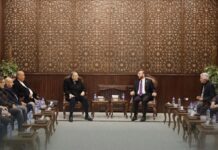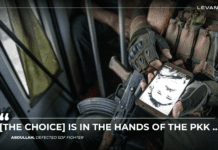
According to recent reports, Israeli Cabinet Minister Gideon Saar threatened Assad’s regime with possible action if it continues to serve as a corridor for weapons from Iran to Hezbollah. This escalates Israel’s ongoing opposition to the transfer of weapons that could bolster Hezbollah’s operations against the Israeli Defense Forces (IDF) and Israeli territories. Saar, a war cabinet member and prominent figure in Israel’s New Right party, stated on Sunday that Israel “missed an opportunity” to remove Assad from power during the revolution when it instead chose to maintain the long-standing relationship it has held with the Assad family and status quo.
“Israel must make clear to Assad that if he chooses to harm Israeli security in this manner, he places his regime in danger,” Saar said, adding that Syria “must not be permitted under any circumstances to be a conduit for weapons supply from Iran to Hezbollah.”
Saar’s comments highlight rising tensions between Israel and the Assad regime, as well as between Israel and Hezbollah, a Lebanese paramilitary group with deep ties to Iran and Syria. Following the resurgence of conflict in Gaza and Lebanon last year, the Israeli Air Force has intensified its airstrikes in Syria, targeting weapons shipments to Hezbollah, often near the Lebanon-Syria border.
Lebanese officials allege these airstrikes have resulted in widespread damage and civilian casualties, with many in Lebanon accusing Israel of violating international law. The United Nations has repeatedly criticized such airstrikes in densely populated areas, calling for restraint to avoid civilian harm.
Hezbollah an Iran-backed terrorist organization based in Lebanon, has claimed to resist Israeli operations in Lebanon and Syria, although neither it nor the Assad regime have made any attempts to defend against or repel recent Israeli incursions and occupation of Syrian land. Though the group has reportedly refrained from using its most sophisticated and powerful weaponry against Israel, Hezbollah claims that its military capacity remains “robust” despite Israeli air campaigns aimed at stifling its arms supply.
Israel, however, remains determined to prevent what it calls a “renewed buildup of power” by Hezbollah in Syria. According to Israeli officials, preventing the Iran-Hezbollah pipeline is critical for Israeli security, given Hezbollah’s extensive arsenal of rockets and its advanced weaponry. Saar emphasized this stance, arguing that severing Assad’s ties with Tehran and Hezbollah would serve Israel’s security interests.
International law experts have repeatedly criticized both Israel and the Assad regime for alleged violations of humanitarian law citing indiscriminate airstrikes, displacement of civilians, and the involvement of foreign militias as examples. Syria, under Assad, has faced accusations of severe war crimes during the conflict, including the targeting of civilians, the use of chemical weapons, and other actions condemned by the UN and global rights organizations.
The current escalation in rhetoric follows a period of heightened regional instability, with more than 2,000 casualties and mass displacement in Lebanon and Syria following intensified clashes over the past month. Border areas along the Syrian-Lebanese frontier have become focal points in the conflict, with Israeli forces increasing their focus on crossings allegedly used to transport Iranian weapons to Hezbollah.
Israel’s campaign to prevent Hezbollah’s access to advanced weaponry through Syria shows no signs of abating, nor does Syria’s alignment with Iran and Hezbollah appears likely to weaken. However, many have noted that Assad’s actual support for the “Axis of Resistance” which includes both Iran and Hezbollah has been restricted to reserved and cautious statements, lacking any actions of even strong condemnations.
As regional actors continue to weigh their options, calls for adherence to international law and restraint in the use of military force remain critical. The situation is indicative of the precarious balance of power in the region, with Israel, Assad, Iran, and Hezbollah each navigating complex alliances and historic grievances.








